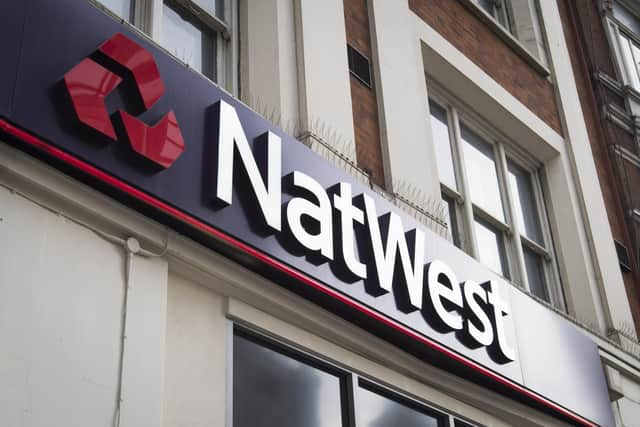Strong recovery could reduce bad debt hangover for banks
NatWest, Lloyds and Barclays all report first-quarter figures and investors will have been buoyed by results from the US banks last week, which saw some of them reduce hefty bad debt provisions put in place at the peak of the pandemic.
Michael Hewson, chief market analyst at CMC Markets, believes the UK banks could follow suit.
Advertisement
Hide AdAdvertisement
Hide Ad“With the outlook for this year becoming more positive, we could start to see some of the provisions that were set aside last year being added back if the economy proves to be more resilient than initially projected,” he said.


“US banks have already started down this road, and while UK banks might be more hesitant, we should still see better numbers given the recent rise in longer-term yields which have improved lending margins.”
Loan demand is also likely to be a key bellwether of business confidence.
Bank of Scotland-owner Lloyds reports on Wednesday and will be the first results since the group bid farewell to outgoing chief executive Antonio Horta-Osorio.
Mr Hewson said the bank’s Q4 numbers were encouraging despite concerns about how the current lockdown might affect its non-performing loan provisions.
“While statutory profits were impacted by the effects of the pandemic and declined 54 per cent, they still came in at £1.54 billion. Net interest margins, while also lower, also showed signs of picking up.”
NatWest Group which reports on Thursday, has seen its shares rebound strongly in recent months amid growing hopes of the resumption of dividends.
Chief executive Alison Rose will update on the group’s cost-cutting progress.
Advertisement
Hide AdAdvertisement
Hide AdAlthough the £3.24bn set aside for loan impairments for 2020 was below expectations, Mr Hewson said the bank’s margins were a concern.
“NatWest has the thinnest margins in the UK banking sector at 1.71 per cent, and given how the yield curve has steepened over the last three months we should expect to see an improvement here,” he predicted.
Ms Rose will also update on the group’s departure from the Republic of Ireland. Although there has been interest in Ulster Bank’s loan book, Mr Hewson said the group was struggling to dispose of the rest of the business.
Debt defaults by UK businesses have not been as bad as feared so far, but there are concerns the end of government support schemes will spark a wave of collapses.
The latest Red Flag Alert recently produced by insolvency specialist Begbies Traynor noted the largest quarterly rise in the number of businesses suffering significant financial distress since 2014 following a year of coronavirus disruption.
The rise was put down to the latest enforced shutdowns of parts of the economy deemed non-essential.
Begbies Traynor said companies in the logistics and property sectors saw particularly sharp increases in hardship over the first three months of 2021.
It warned that an easing of lockdowns may not be able to prevent many companies in distress from sliding into insolvency.
A message from the Editor:Thank you for reading this article. We’re more reliant on your support than ever as the shift in consumer habits brought about by coronavirus impacts our advertisers. If you haven’t already, please consider supporting our trusted, fact-checked journalism by taking out a digital subscription: www.scotsman.com/subscriptions
Comments
Want to join the conversation? Please or to comment on this article.